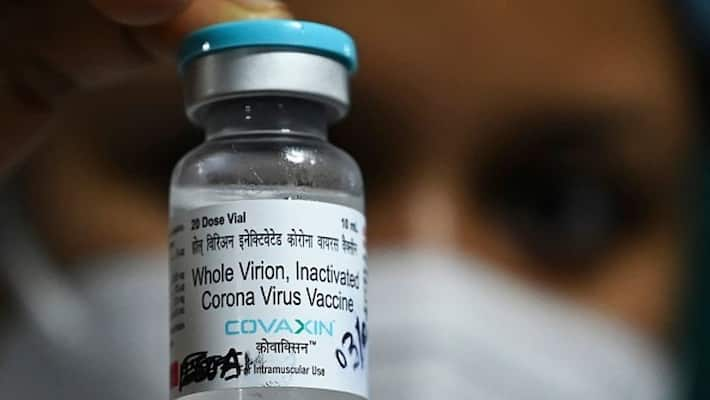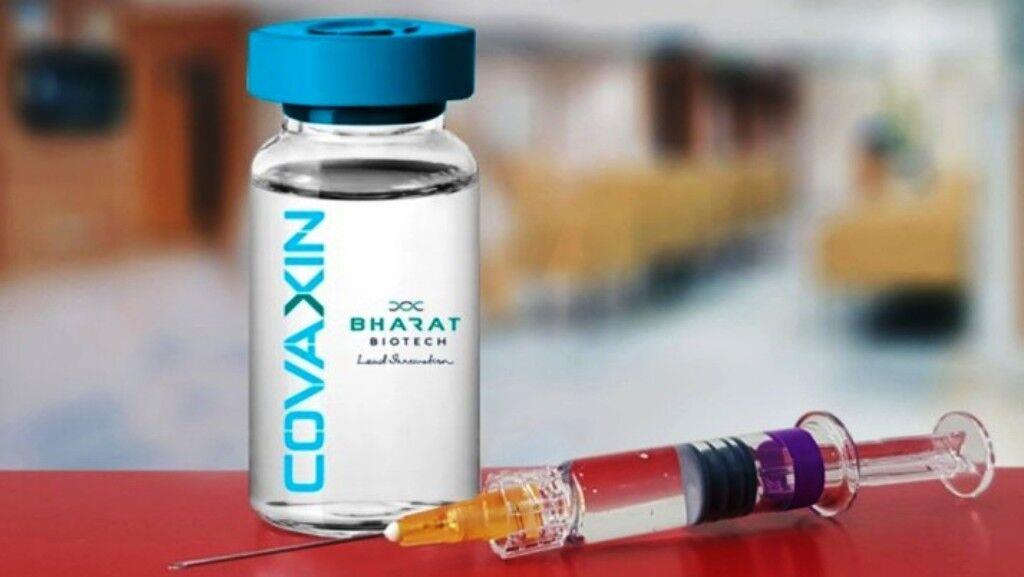From October, India is expected to begin vaccinating youngsters aged 12 to 17 against COVID-19. In September, the Drug Controller of India (DCGI) authorized Cadila Healthcare’s needleless three-dose vaccination ZyCov-D for children. It is the first vaccination developed on the plasmid DNA technology, and it has been approved for use in children on an emergency basis.
What other vaccinations are there for children?
Several pharmaceutical firms in India are developing COVID-19 vaccines for children.
The Serum Institute of India (SII) in Pune has got clearance to undertake phase two and three clinical trials of Covovax, the Indian version of the Novavax vaccine developed by a US biotech business, on children aged seven to eleven years.
The second and third stages of the trials, which began in August, comprised a total of 920 children: 40 between the ages of 12 and 17, 230 between the ages of seven and eleven, and 230 between the ages of two and six.

Although children are a low-risk category, fewer total infections might aid in the prevention of another COVID-19 outbreak. Some states have begun to reopen schools for specific age groups.
These youngsters have the potential to become carriers of the virus, and scientists believe that immunization is the only way to avoid this.
3eeS
What is the situation in the rest of the world?
The Pfizer/BioNTech vaccine is authorized by the US Food and Drug Administration for adults over the age of 16 and has a EUA for children aged 12 to 15. The pharmaceutical behemoth is requesting an emergency use authorization for the vaccine, which will be administered to youngsters aged 5 to 11 years. In those aged 16 and up, the vaccination is about 91 per cent effective in avoiding serious disease.

Pfizer-Comirnaty BioNTech’s and Moderna Spikevax have been authorized in Canada for children aged 12 and above. At the moment, no coronavirus vaccination has been licensed for children under the age of 12, since clinical trials are being conducted to establish if the COVID-19 vaccines are safe and efficacious in infants and children under the age of 12.
France, the first country to vaccinate children above the age of 12, also delivered the first dose to over 68 per cent of youngsters aged 12 to 17, with 56 per cent completely vaccinated by September.
Italy is likewise attempting to vaccinate as many teenagers as possible when the country’s schools reopen in September. Pfizer’s vaccine is licensed for children aged 12 to 15 years.
Bharat Biotech’s Covaxin for adults
Bharat Biotech’s indigenously produced Covid-19 vaccine Covaxin neutralizes multiple SARS-CoV-2 variants. The Indian Council of Medical Research (ICMR) announced today that covaxin successfully neutralizes the double mutant strain.

The ICMR-National Institute of Virology successfully identified and cultivated several SARS-CoV-2 virus variants of concern: B.1.1.7 (the UK variation), B.1.1.28 (Brazil variant), and B.1.351 (South Africa variant). According to the premier health research agency, ICMR-NIV has proven the neutralization capability of Covaxin against the UK version and the Brazil variant.
The ICMR-NIV recently succeeded in isolating and cultivating the double mutant strain B.1.617 SARS-CoV-2 discovered in some parts of India and numerous other nations, according to the ICMR.
The government has made vaccination available to all people over the age of 18 as of May 1.
On January 16, India began its vaccination campaign, with priority given to all healthcare and frontline workers in the first phase. The second phase began on March 1st, with dosages delivered to those above the age of 60 and those between the ages of 45 and 59 who had specified comorbidities. For its COVID-19 immunization campaign, India now has three vaccines: Covishield, Covaxin, and Sputnik V.
Covaxin approved for emergency use for children between 2-18 years
The Subject Expert Committee (SEC) has recommended that Bharat Biotech’s Covaxin be granted market authorization for children aged 2 to 18, albeit with certain conditions.
The SEC has forwarded suggestions to the Drugs Controller General of India (DCGI), who is expected to issue a decision soon.

Bharat Biotech, located in Hyderabad, completed Phase-2 and Phase-3 studies of Covaxin on children under the age of 18 in September and submitted the trial results to the DCGI at the beginning of this month.
However, the authorization is subject to four restrictions.
One, the company should continue the study as per the approved clinical trial protocol; two, the company should provide updated Prescribing Information/Package Insert (PI), Summary of Product Characteristics (SmPC). Furthermore, all other criteria of the previous authorization in the 18-year age category must remain unchanged.
According to reports, the manufacturing immunization by India vaccines would be given in two doses, with a 20-day interval between the first and second injections.
Also Read: India steps up the search for a new vaccine for tuberculosis
















